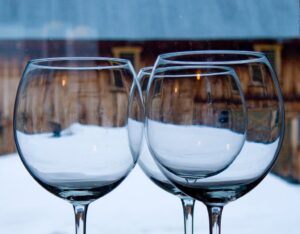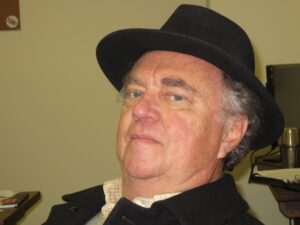Headlines
Wine Tip: Swiss Wines for Cold Weather
Editor’s Note: This is an exert from author John Hailman’s book The Search for Good Wine. This particular chapter was written on December 13, 1987.
 As winter draws near, it reminds me of a wonderful snowy January spent in Geneva in 1979 with some of the world’s least-known fine wines.
As winter draws near, it reminds me of a wonderful snowy January spent in Geneva in 1979 with some of the world’s least-known fine wines.
Although its vineyard area is small and eminendy chilly, Switzerland makes some truly good wines. They are not seen often enough in the United States. The big problem is the Swiss franc, which has been so strong it makes most Swiss products too expensive for anyone but the Swiss to consider. Nevertheless, during cold weather, my mind always returns to those special wines with their unusual names.
Unlike some California wine labels, Swiss labels are cryptic, often giving no information beyond the name of the grape and the village. They are mercifully simple, not complicating your life with what date the grapes were picked, what they measured on a saccharometer or anything else, but just sit there waiting to be consumed.
If you want to read up on Swiss wines, there is virtually no book accessible on the subject, the best current sources being the wine encyclopedias by Jancis Robinson and Hugh Johnson.
But if you want to get inside the mind of a Swiss winemaker, which apparendy is as complicated and subde as a Swiss watch, I can recommend a truly interesting and litde-known book by New Yorker writer John McPhee. Published in 1983 by Farrar, the book has the daunting title Place de La Concorde Suisse, but don’t let that stop you: the tide is the only French phrase in the book, which is superb. I don’t often say that about any book, as a matter of fact almost never. It cost only $12.95 in hardback when it appeared, and is worth pursuing in libraries and out-of-print bookstores and journals.
 Its theme is the Swiss character, as revealed in its Army, and its symbol, the Swiss Army knife. The main character (it is a non-fiction work but this guy can only be called a character) is Luc Massy, a reservist winemaker from the shores of Lake Geneva in the French-speaking wine-making part of Switzerland. He even spent time studying wine-making in California. Despite his taciturn nature, Massy tells McPhee the most useful thing he learned there: they get oak taste in their jug wines not by aging in expensive oak barrels, but by pouring cheap oak chips into the wines in steel vats.
Its theme is the Swiss character, as revealed in its Army, and its symbol, the Swiss Army knife. The main character (it is a non-fiction work but this guy can only be called a character) is Luc Massy, a reservist winemaker from the shores of Lake Geneva in the French-speaking wine-making part of Switzerland. He even spent time studying wine-making in California. Despite his taciturn nature, Massy tells McPhee the most useful thing he learned there: they get oak taste in their jug wines not by aging in expensive oak barrels, but by pouring cheap oak chips into the wines in steel vats.
Massy makes the Swiss white wine most often seen in the United States, Chasselas, a white wine named for a grape also grown in France. The problem with the Chasselas is that it has a different name in almost every one of the Swiss cantons or provinces in which it is grown. The one to look for in the United States is Pendant, pronounced “faw-daw.” For some reason it is one white wine that tastes good in cold weather – no doubt the Swiss developed it that way over several hundred years of experimenting. It is especially good with Swiss fondue, the hot, bubbly cheese dish that is its natural partner in alpine winters (or Colorado winters for that matter).
For those who must have red wines in winter, the Swiss make two good ones. Best-known i Dole, which can be found in most U.S. cities. It is a blend of the gamay grape of Beaujolais and the pinot nair of Burgundy but must contain at least 51 percent pinot to be labeled Dole. It is better than its French counterpart, called Passetoutgrain, and worth a try. Better still is Swiss pinot noir, but it is hard to find in the United States.
Best Swiss wine of all is the elusive Ermitage, a white similar to the Hermitage of France, downstream on the Rhone. Ermitage is a white wine made from the Roussanne grape with something of the body of a good Rhine, but with an aroma of ripe apricots and a lingering flavor unlike any other wine, probably from the granitic soils and harsh climate which produce it. Best I’ve tasted is from a family named d’Alleves. It is well worth a search and a detour.
 John Hailman of Oxford is a regular contributor to HottyToddy.com on two subjects: Law and Wine. Now retired from both his “day job” as a federal prosecutor in Oxford after 33 years and his “night job” of 25 years as a nationally syndicated daily columnist in more than 100 daily papers on wine, food and travel for Gannett News Service and the Washington Post, Hailman will cover both topics under the titles of The Legal Eagle and Wine Tips of the Week. HottyToddy.com will also run periodic excerpts from Hailman’s upcoming book of humorous legal stories, From Midnight to Guntown: True Crime Stories From A Federal Prosecutor in Mississippi. Hailman now teaches Federal Trial Practice and Law and Literature at the University of Mississippi.
John Hailman of Oxford is a regular contributor to HottyToddy.com on two subjects: Law and Wine. Now retired from both his “day job” as a federal prosecutor in Oxford after 33 years and his “night job” of 25 years as a nationally syndicated daily columnist in more than 100 daily papers on wine, food and travel for Gannett News Service and the Washington Post, Hailman will cover both topics under the titles of The Legal Eagle and Wine Tips of the Week. HottyToddy.com will also run periodic excerpts from Hailman’s upcoming book of humorous legal stories, From Midnight to Guntown: True Crime Stories From A Federal Prosecutor in Mississippi. Hailman now teaches Federal Trial Practice and Law and Literature at the University of Mississippi.






















